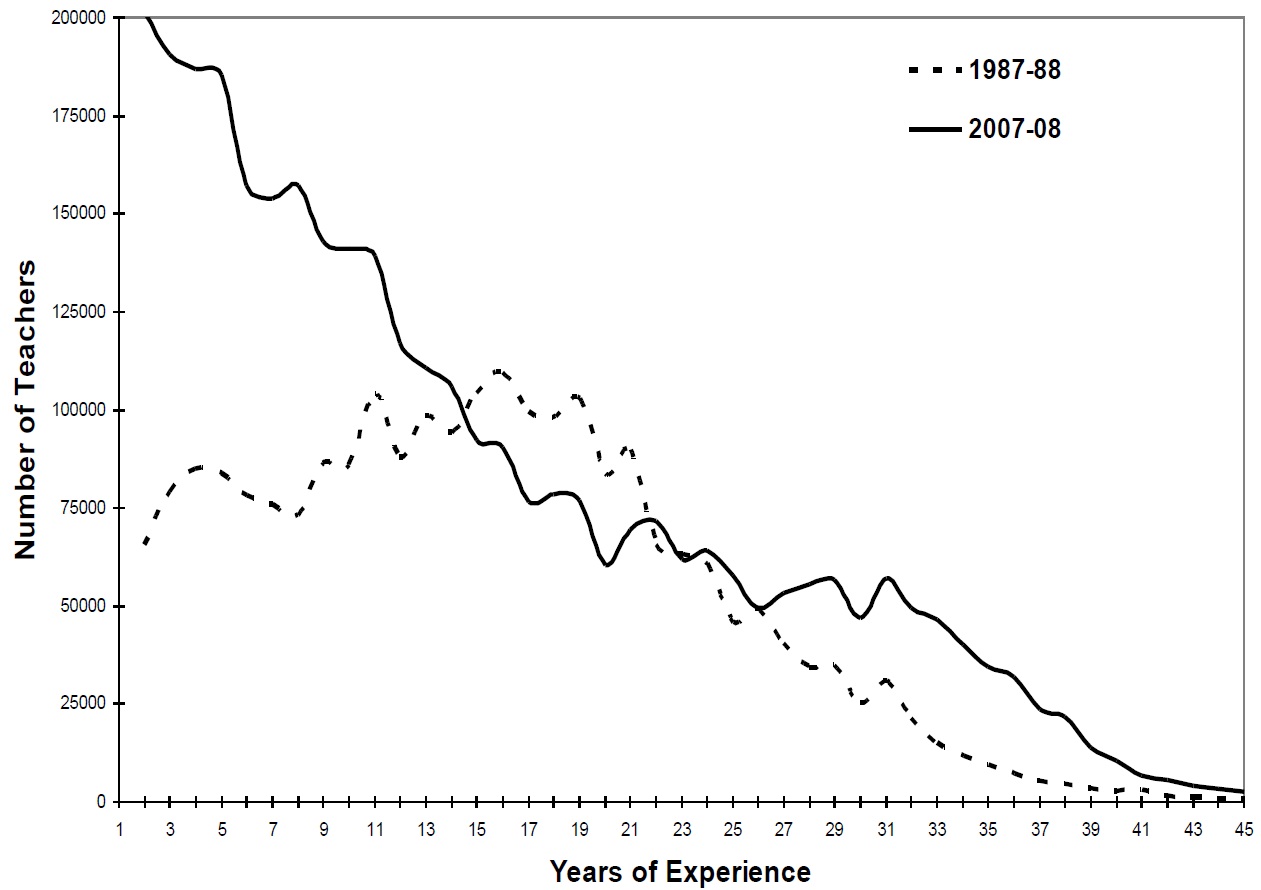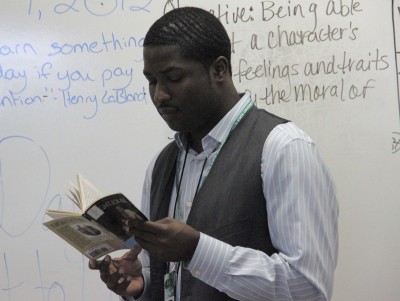More inexperienced teachers are in today’s classrooms than ever before and they are more open than their veteran colleagues to performance-driven options for how they’re evaluated and paid, according to the results of a new survey conducted by the Boston-based nonprofit Teach Plus.
For the first time in decades, more than 50 percent of the nation’s teaching force is comprised of teachers who have been in the classroom under 10 years, Teach Plus found in “Great Expectations: Teachers’ Views on Elevating the Teaching Profession,” which looks at the changing demographics of U.S. teachers.

From “Seven Trends: The Transformation of the Teaching Force,” by Richard Ingersoll and Lisa Merrill (May 2012)
The national survey asked 1,015 new and veteran teachers their views on some of the most contentious issues in U.S. public education, like teacher evaluations and class size, to see if attitudes are shifting with an influx of newer teachers.
Despite differences in experience, teachers are generally united when it comes to working conditions. The majority of both newbies and veterans agree that class sizes should not be increased, even if doing so would provide districts with more funding to raising salaries. The two groups are also in agreement about keeping the school day shorter and said that increasing pay is key to elevating public respect for the profession.
On the topic of teacher evaluations, though—one of the most highly debated issues in education reform—the two demographics have mostly differing views. They agree that current teacher evaluations are ineffective at improving instruction, but 71 percent of less experienced teachers say their evaluation should be tied to student test score growth, compared to only 41 percent of veteran teachers.
Those who began teaching in the last decade are also more supportive of changing compensation and tenure systems, and more likely to think the use of student data is important to teach more effectively.
 Celine Coggins, founder and CEO of Teach Plus, said a new generation of teachers has been exposed to the magnitude of the achievement gap, which may influence their attitudes and their belief in the importance of data.
Celine Coggins, founder and CEO of Teach Plus, said a new generation of teachers has been exposed to the magnitude of the achievement gap, which may influence their attitudes and their belief in the importance of data.
“Closing gaps among racial groups and across income levels motivates the commitment to teaching for so many,” Coggins said.
In 1987, the majority of teachers had 15 years of experience, according to a study by researchers at the University of Pennsylvania. Now, with about half of new teachers leaving urban classrooms within three years, teachers with just one year of experience are the most common in U.S. classrooms. And each year, 200,000 new teachers enter the profession, 65 percent of whom are recent college graduates.
Mark Teoh, director of research and knowledge at Teach Plus, said that these new teachers were most likely students during or after the introduction of the No Child Left Behind Act in 2002, and said their attitudes show they are more accustomed to testing and accountability than their more experienced colleagues.
At a time when states are introducing the Common Core standards and new evaluation methods, Teoh says these shifting teacher attitudes could influence education reform, as policymakers hear “what kind of profession these teachers want to see, and what kind of workforce they want to be a part of.”
The report also highlights problems that come with a younger, less experienced teaching force. Teach Plus recommends including teacher opinion in policymaking and encouraging newer teachers to take on leadership roles.
“There’s definitely room and a hunger for these teachers to be part in the policy process itself,” Teoh said. “They’re the ones who are there all the time, and they can provide the feedback, guidance and perspective that [are] needed.”



